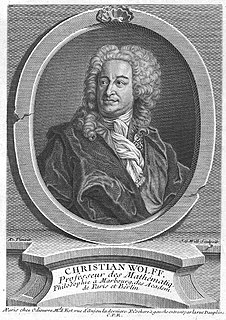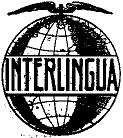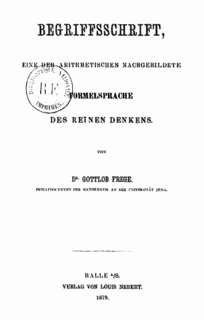Related Research Articles

Gottfried Wilhelm (von) Leibniz was a German polymath active as a mathematician, philosopher, scientist, and diplomat. He is one of the most prominent figures in both the history of philosophy and the history of mathematics. He wrote works on philosophy, theology, ethics, politics, law, history, and philology. Leibniz also made major contributions to physics and technology, and anticipated notions that surfaced much later in probability theory, biology, medicine, geology, psychology, linguistics, and computer science. In addition, he contributed to the field of library science: while serving as overseer of the Wolfenbüttel library in Germany, he devised a cataloging system that would have served as a guide for many of Europe's largest libraries. Leibniz's contributions to this vast array of subjects were scattered in various learned journals, in tens of thousands of letters, and in unpublished manuscripts. He wrote in several languages, primarily in Latin, French, and German, but also in English, Italian, and Dutch.

An international auxiliary language is a language meant for communication between people from all different nations, who do not share a common first language. An auxiliary language is primarily a foreign language and often a constructed language. The concept is related to but separate from the idea of a lingua franca that people must use to communicate.

Christian Wolff was a German philosopher. Wolff was the most eminent German philosopher between Leibniz and Kant. His main achievement was a complete oeuvre on almost every scholarly subject of his time, displayed and unfolded according to his demonstrative-deductive, mathematical method, which perhaps represents the peak of Enlightenment rationality in Germany.

Latino sine flexione, Interlingua de Academia pro Interlingua or Peano's Interlingua, is an international auxiliary language compiled by the Academia pro Interlingua under chairmanship of the Italian mathematician Giuseppe Peano (1858–1932) from 1887 until 1914. It is a simplified version of Latin, and retains its vocabulary. Interlingua-IL was published in the journal Revue de Mathématiques in an article of 1903 entitled De Latino Sine Flexione, Lingua Auxiliare Internationale, which explained the reason for its creation. The article argued that other auxiliary languages were unnecessary, since Latin was already established as the world's international language. The article was written in classical Latin, but it gradually dropped its inflections until there were none.
The alphabet of human thought is a concept originally proposed by Gottfried Wilhelm Leibniz that provides a universal way to represent and analyze ideas and relationships by breaking down their component pieces. All ideas are compounded from a very small number of simple ideas which can be represented by a unique character.

Mathesis universalis is a hypothetical universal science modelled on mathematics envisaged by Descartes and Leibniz, among a number of other 16th and 17th century philosophers and mathematicians. For Leibniz, it would be supported by a calculus ratiocinator. John Wallis invokes the name as title in his Opera Mathematica, a textbook on arithmetic, algebra, and Cartesian geometry.
The calculus ratiocinator is a theoretical universal logical calculation framework, a concept described in the writings of Gottfried Leibniz, usually paired with his more frequently mentioned characteristica universalis, a universal conceptual language.

Begriffsschrift is a book on logic by Gottlob Frege, published in 1879, and the formal system set out in that book.

Louis Couturat was a French logician, mathematician, philosopher, and linguist. Couturat was a pioneer of the constructed language Ido.
Universal language may refer to a hypothetical or historical language spoken and understood by all or most of the world's population. In some contexts, it refers to a means of communication said to be understood by all humans. It may be the idea of an international auxiliary language for communication between groups speaking different primary languages. In other conceptions, it may be the primary language of all speakers, or the only existing language. Some religious and mythological traditions state that there was once a single universal language among all people, or shared by humans and supernatural beings.
Universal science is a branch of metaphysics. In the work of Gottfried Wilhelm Leibniz, the universal science is the true logic. Plato's system of idealism, formulated using the teachings of Socrates, is a predecessor to the concept of universal science. It emphasizes on the first principles which appear to be the reasoning behind everything, emerging and being in state with everything.

aUI is a philosophical, a priori language created in the 1950s by W. John Weilgart, Ph.D. a philosopher and psychoanalyst originally from Vienna, Austria. He described it as "the Language of Space", connoting universal communication, and published the fourth edition of the textbook in 1979; a philosophic description of each semantic element of the language was published in 1975.
A philosophical language is any constructed language that is constructed from first principles. It is considered a type of engineered language. Philosophical languages were popular in Early Modern times, partly motivated by the goal of revising normal language for philosophical purposes. The term ideal language is sometimes used near-synonymously, though more modern philosophical languages such as Toki Pona are less likely to involve such an exalted claim of perfection. The axioms and grammars of the languages together differ from commonly spoken languages.

The Dissertatio de arte combinatoria is an early work by Gottfried Leibniz published in 1666 in Leipzig. It is an extended version of his first doctoral dissertation, written before the author had seriously undertaken the study of mathematics. The booklet was reissued without Leibniz' consent in 1690, which prompted him to publish a brief explanatory notice in the Acta Eruditorum. During the following years he repeatedly expressed regrets about its being circulated as he considered it immature. Nevertheless it was a very original work and it provided the author the first glimpse of fame among the scholars of his time.
The Latin term characteristica universalis, commonly interpreted as universal characteristic, or universal character in English, is a universal and formal language imagined by Gottfried Leibniz able to express mathematical, scientific, and metaphysical concepts. Leibniz thus hoped to create a language usable within the framework of a universal logical calculation or calculus ratiocinator.
The Energy Systems Language, also referred to as Energese, Energy Circuit Language, or Generic Systems Symbols, is a modelling language used for composing energy flow diagrams in the field of systems ecology. It was developed by Howard T. Odum and colleagues in the 1950s during studies of the tropical forests funded by the United States Atomic Energy Commission.
Balaibalan is the oldest known constructed language, created in Timurid or Safavid Iran.

La ricerca della lingua perfetta nella cultura europea is a 1993 book by Umberto Eco about attempts to devise an ideal language. The writing is essayistic and uses the myth of Babel as a paradigm for connecting linguistic and social practices. Emphasizing that the quest for a perfect language has never been devoid of ideological motivation, Eco outlines some objections to the idea and suggests that an International Auxiliary Language, such as Esperanto, is a more realistic project. He points out that the impossible quest has had some useful side effects but dwells mostly on exotic proposals. Lengthy passages are devoted to Dante, Lull, Kircher, various 17th century authors and a few less well-known names from later times. The contemporary project for a politically and culturally unified Europe provides the perspective for a more serious consideration of the theme.
Zonal auxiliary languages or zonal constructed languages are constructed languages made to facilitate communication between speakers of a certain group of closely-related languages. They form a subgroup of the international auxiliary languages but are intended to serve a limited linguistic or geographic area, rather than the whole world like Esperanto and Volapük. There is some overlap with the term "Euroclone", but the latter usually refers to languages intended for global use but based (almost) exclusively on European material. Another related concept is a koiné language, a dialect that naturally emerges as a means of communication among speakers of divergent dialects of a language.
Ján Herkeľ (1786–1853) was a Slovak attorney and writer.